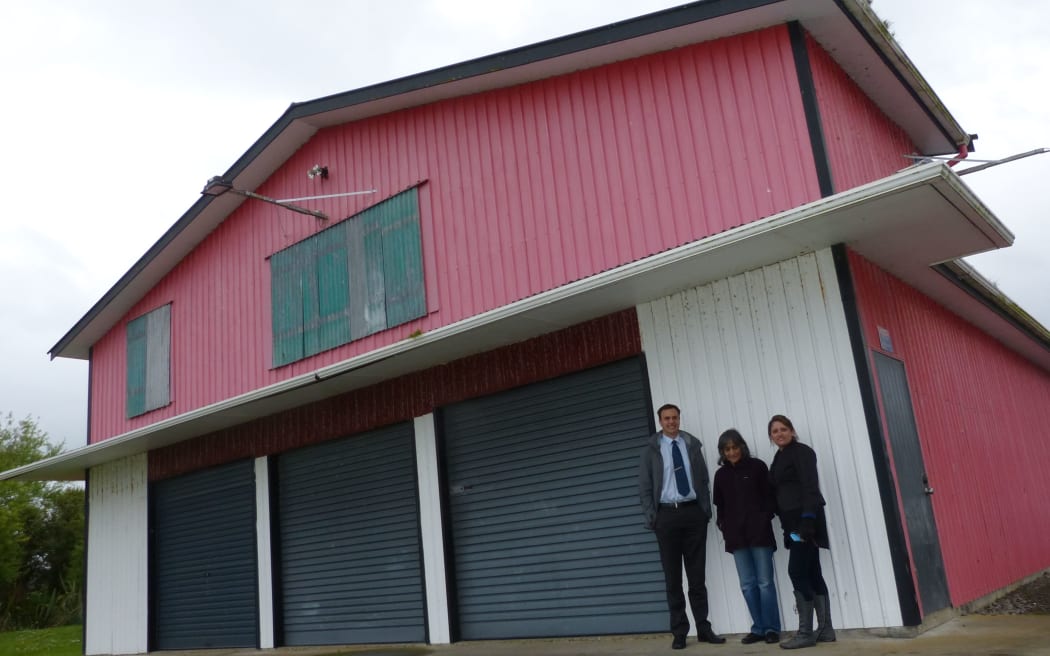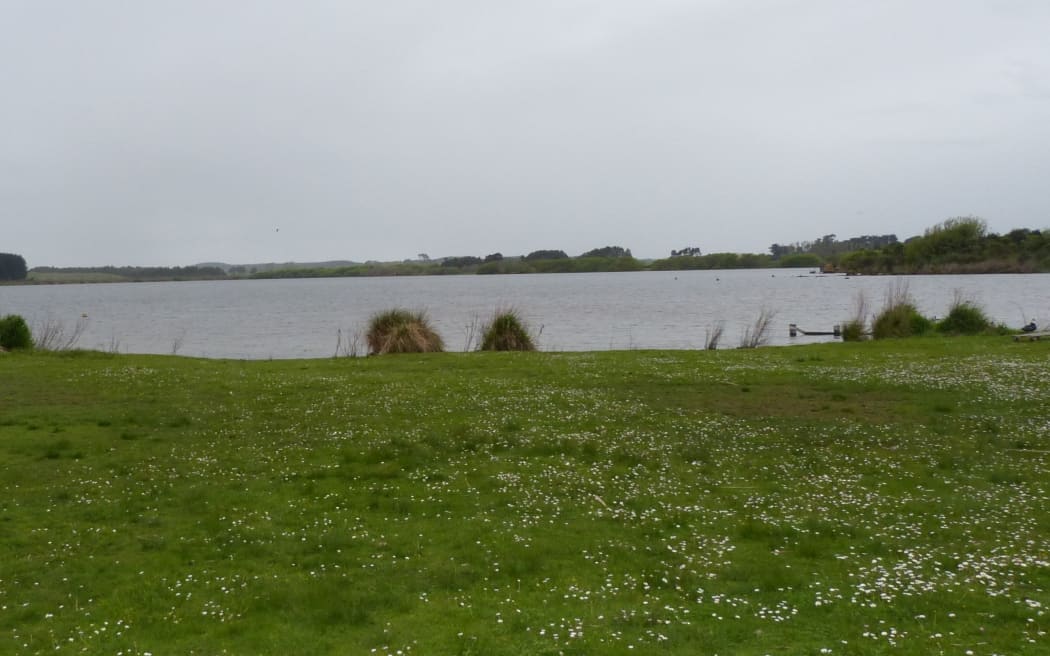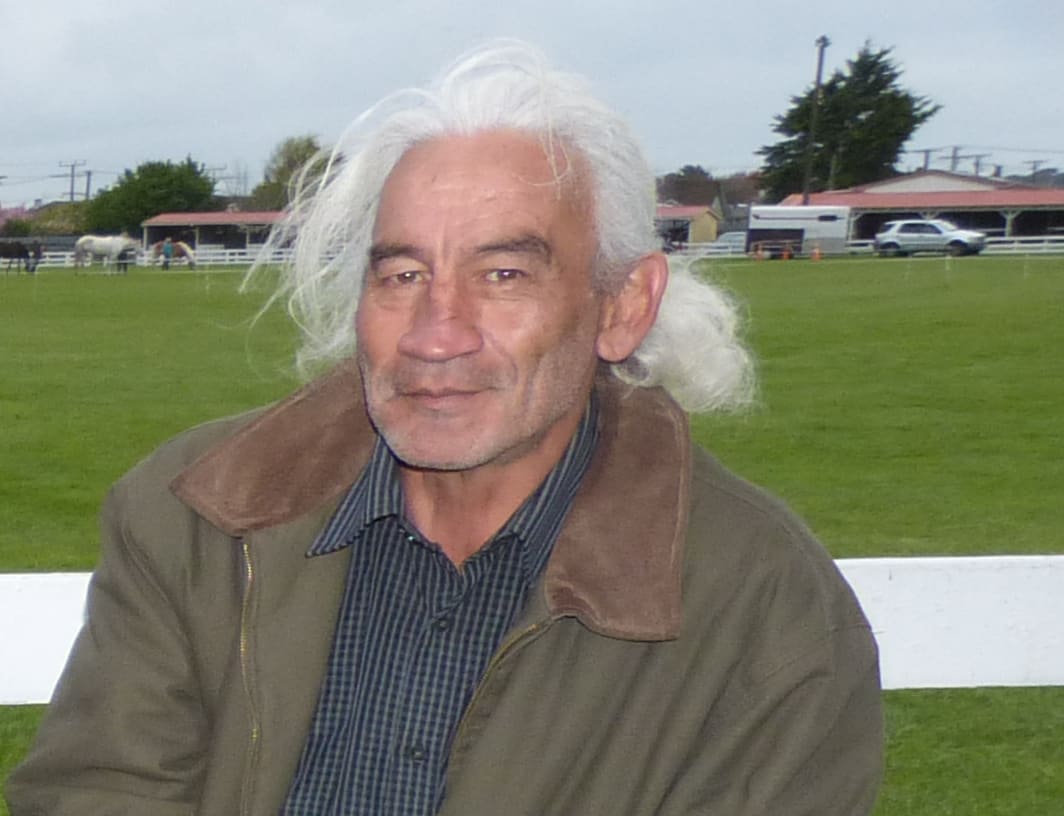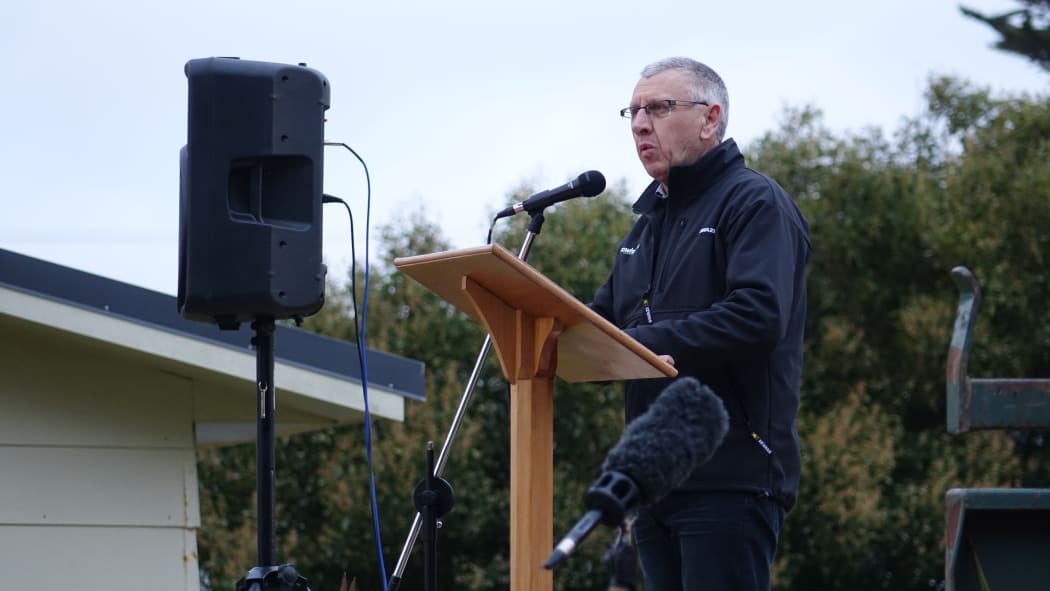A showdown of sorts has taken place on the shores of Lake Horowhenua, where a long-running dispute between the local rowing club and one of the lake's Māori owners recently reignited.

Horowhenua Rowing Club supporters Andrew Bealing, Bonnie Packer and Vanda Packer outside the rowing club buildings. Photo: RNZ / Bridget Grace
One of the lake's owners, Phil Taueki, who lives at the lake, has been at war with the rowers over the use of club sheds he says were illegally built on Māori land.
The Horowhenua Rowing Club had been permitted to lease the buildings on the lakeside but after being told to leave and given a deadline, they have begun moving out.
The conflict between the two parties is deeply embedded in the management, ownership and administration of the lake, which is the subject of 22 Waitangi Tribunal claims.

Lake Horowhenua - once the food bowl for its iwi - is now one of New Zealand's most polluted lakes. Photo: RNZ / Bridget Grace
Lake Horowhenua is unique. It is owned by Māori but, after a parliamentary act in 1905, its administration and management became the responsibility of a government-appointed board.
The Horowhenua Lake Domain Board is made up of four council representatives and four iwi but at present just three iwi members sit on the board.
In 1950, the government also formed a trust to represent the Māori owners, but not all of the owners support it.
Maori Development Minister Te Ururoa Flavell said the model was not one that would be used today. He said he had heard the concerns of Māori about the set-up and was willing to work with them to solve the situation.
Mr Taueki, who is one of the lake's many owners, operates without his wider iwi's support - but with the belief he has every right to occupy and manage the lake, of which his grandfather was an original owner.

The Taueki whanau - including Phil Taueki, at far right. Photo: Supplied
According to a Māori Land Court judgment, the buildings at the heart of the dispute are considered fixtures and, consequently, are the property of the lake's Māori land owners.
The lake's board, however, has permitted the rowers to use the club sheds for decades.
Mr Taueki has often been left standing on his own in his opposition to the agreement.
During the long-running dispute, there have been allegations of assaults, claims of death threats and vandalism.
Mr Taueki has had about 40 different charges laid against him but said all of them had been withdrawn or dismissed, with only a couple still pending.
He said the lakeside had been quiet since the rowers left the buildings and he hoped they would not come back.
A question of governance
The correct interpretation of governance and rights at Lake Horowhenua has been fiercely disputed by Horowhenua Mayor Brendan Duffy and Mr Taueki.
Under the Reserves and Other Lands Disposal Act 1956, one group cannot hold an exclusive lease for the contested lakeside buildings.
Mr Taueki has said the Horowhenua Rowing Club absolutely did hold an exclusive lease but the mayor, who is also a member of the lake board, said that was not his interpretation.

Horowhenua Mayor Brendan Duffy Photo: RNZ / Michael Cropp
Mr Duffy said he was appalled the rowers had moved out, and said a club that did nothing more than row for recreation should not have to remove its property from the buildings.
Mr Taueki said he wanted a waka ama club to take over the buildings and he wanted to see young Māori utilising the lake, which was a taonga (treasure).
But Mr Duffy said the rowers built the buildings and they should be allowed to use them.
The Māori trust set up by the government is the third party in this affair. The trust's chairman, Matt Sword, who represents all Māori owners, is related to Mr Taueki but said they did not see eye to eye.
He said Mr Taueki had chosen the wrong way to go about things. Despite that, he agreed with Mr Taueki that the rowers should not hold an exclusive right to lease the buildings.
Mr Sword, who is the lead negotiator for Muaūpoko, said the governance arrangement of the iwi's lake was archaic and needed to be revisited.
He said most of the lake's owners were not interested in these kinds of disputes and, instead, were more concerned with the health of the lake.
It is the state of Lake Horowhenua, however, that Mr Taueki has said is his greatest concern.
The lake, which was once the food bowl of the iwi, is now so polluted that, in 2013, NIWA freshwater scientist Max Gibbs told the district council that in certain conditions the water was toxic enough to be lethal if swallowed by a small child.
Lake Horowhenua's water quality ranks it among 10 of New Zealand's worst lakes.
The council, and Mr Sword, along with three other groups recently signed an agreement - the Horowhenua Accord - to clean it up but Mr Taueki said that was too little, too late.




